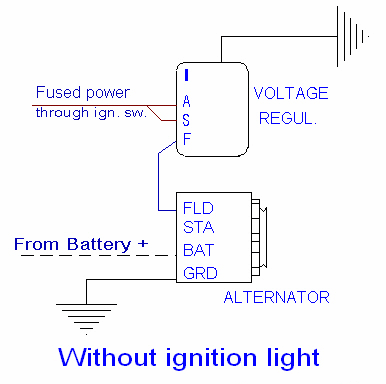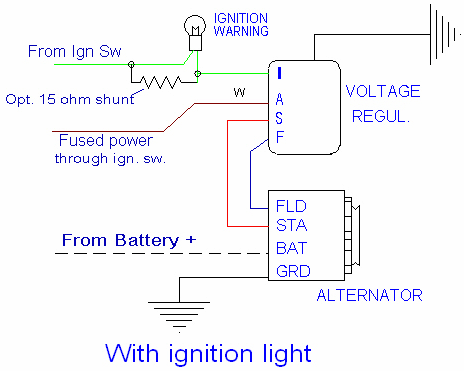Troubleshooting Charging Problems
ALTERNATOR AND VOLTAGE REGULATOR
OVERVIEW:
The alternator has a centrally rotating set of coils powered from the field terminal. As this rotor turns, it drags a magnetic field past the stationary coils that surround it.
This magnetic field generates alternating current within these stationary coils, which then passes through a grid of one-way valves (diodes) to produce the DC current useful to automotive applications.
The voltage output is governed by the amount of current in the field circuit, and is controlled by the Voltage Regulator. Current is fed to the battery and other power absorbers through the large Bat terminal on the back of the alternator. A ground connection on the alternator case completes the electrical circuit. There is also a Stator terminal on the alternator, but it is not used on the 427SC. The battery power comes from a connection on the starter solenoid.
Power flows from the ignition switch, through a fuse, to the voltage regulator. Voltage is measured from this source. Internal circuits take the power source and regulate it, sending it to the field terminal of the alternator so that the output voltage to the battery is correct.

